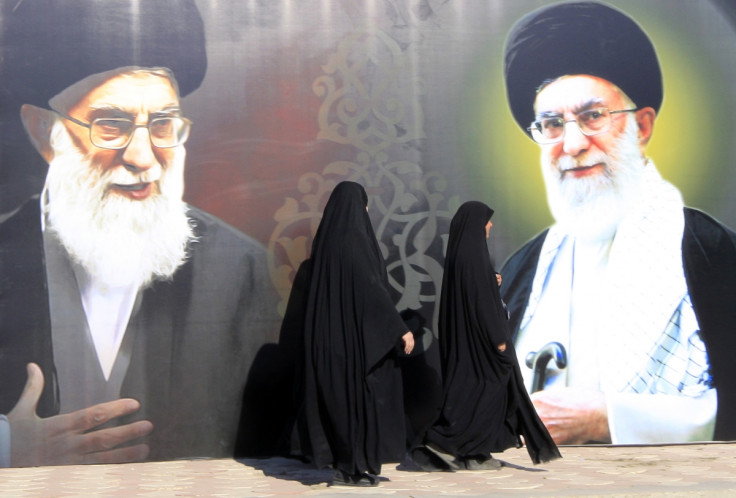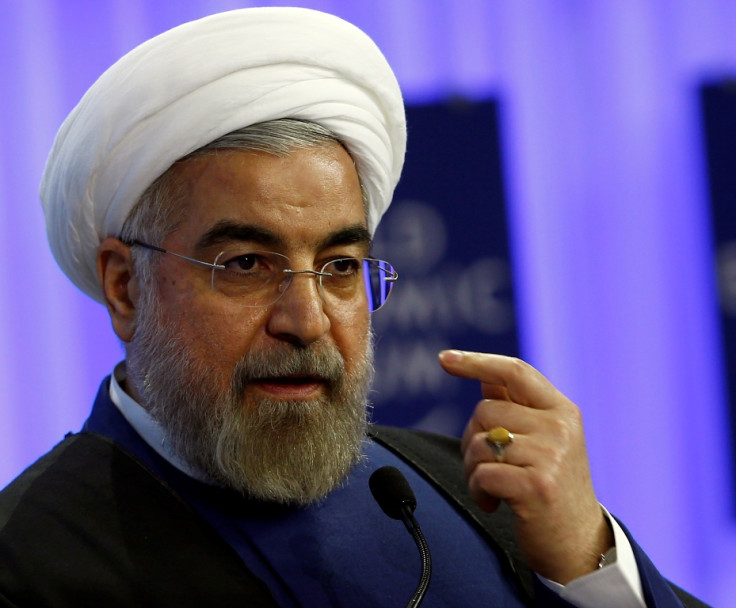Iranians were Real Victims of Western Sanctions

Sanctions are never far from our newspapers or television sets and yet, despite our familiarity, they seem remote and inhuman.
Economic and trade sanctions (as opposed to the sanctions currently being placed on individual Russians) are supposed to hit industry, corporations and government coffers, a fact that lends them the cold, mechanical feel of legalese.
Often, though, the real victims are society's poorest.
The decade-long sliding scale of sanctions the west imposed against Iran were ostensibly an effort to halt Tehran's uranium enrichment programme. It may well have been successful in doing so, but only after impoverishing those on the lowest rung of the economic ladder.
"The Iranian people have been real losers in this," Nigel Kushner, the CEO of law firm W Legal tells IBTimes UK. "Things are very tough. The sanctions have really bitten and had an adverse impact."
Iran's dominant crude oil industry was forbidden from exporting to the EU and US. America pressured the likes of South Korea, Japan and India to either stop importing Iranian oil or to cut back on its purchase.
Sanctions on Iran's financial sector meant businesspeople were unable to access international finance markets to borrow money – or to sell their wares abroad.
Inflation hit 25% in 2012, with the rial losing half its value against the dollar – a direct impact of sanctions, along with the economic mismanagement of Mahmoud Ahmadinejad, whose subsidises almost crippled the country financially and which are being revoked, piece by piece, by his successor.
The basic cost of living hit the middle and working classes, with the price of bread rising by 1500% in the two years to July 2012. All the while, wages stood still.
And despite the breakthrough in negotiations with the so-called P5+1 group – US, Britain, Russia, China, France and Germany – in Geneva last year, conditions haven't improved.
Of the $7bn in sanctions relief granted by the P5+1, very little has been released. In the midst of all the regulatory uncertainty, it's hard to find a bank that will touch it.
"It absolutely hasn't improved on the ground. I would say that there was a feeling of temporary euphoria that things would become better; more hope. But there's been absolutely zero change on the ground," says Kushner.
Political issues with Russia - no-one knows how they will impact Iran. On the one hand it could be devastating. Iran could play into the hands of Russia, who would be delighted to ally itself with Iran in order to bolster its position vis-à-vis the west.
This week, Iran's official news agency IRNA reported that Iran's non-performing bank loans had reached 15.6% of total bank loans.
It may be a message wheeled out by incumbent premiers the world over, but Hassan Rouhani is struggling to clean up the mess he inherited from Ahmadinejad.
Iran came back to the negotiation table last year upon the election of Rouhani, who was swept to power on a reformist ticket. He wooed the electorate with pledges of economic reform and improved relations with the rest of the world.
A disgruntled and disillusioned public took heed. He'd best deliver.
This week in London, the House of Lords Sub-Committee C on External Affairs took evidence from Sir Richard Dalton, the former Ambassador to Iran, as it builds its case for supporting the interim agreement between Iran and the EU.
Talks are progressing well, says Kushner, but a final agreement is a long way off yet.
"Talks have progressed in a good and positive manner overall, with a number of hiccups smoothed over along the way," Kushner says. "There was an attempt by Congressmen to enact new sanctions after the Geneva détente. Iran made clear that if that happened all bets are off; that was a deal-breaker."
Neither side wants to lose face and the likelihood is that Iran is playing hardball. Returning to Tehran with a deal that's perceived to be weak in the eye of a proud Iranian public would be political suicide for Rouhani, while Obama has to appease the most hawkish elements of his government in Washington DC.
The fear is that the longer the discussions rumble on, the more likely they are to be affected by extraneous events.
"A perfect example might be political issues with Russia - no-one knows how they will impact Iran. On the one hand it could be devastating. Iran could play into the hands of Russia, who would be delighted to ally itself with Iran in order to bolster its position vis-à-vis the west."
Events in Russia could also act as a catalyst: White House fears over Russian interference could add impetus to negotiations.

Things are delicately posed. Sub-Committee C's discussions are likely to be a formality – a progress report more than anything else. But any negative commentary into Iran's stance or negotiation tactic could, says Kushner, be fatal to discussions.
If Tehran perceives that it's being mistreated or portrayed as not negotiating in good faith, it could scupper everything.
If economic conditions inside the country don't pick up soon, public unrest will simmer again. Despite the partial sanctions amnesty achieved last year, trade has not begun to flow. Cash is still in short supply.
"Much trade can occur legally today between the EU and Iran but doesn't for one simple reason but doesn't because of the informal banking boycott of Iran. There's not one western bank which will raise its head above the parapet and agree to allow trade to Iran," says Kushner.
"They're perfectly entitled to for humanitarian goods but won't because they're afraid of the US. What remains to be seen is how quickly these banks can change tack and course. In other words, you can have a resolution; the sanctions can go but until the banks decide to play ball there won't be any resolution."
When traders re-enter the country, they'll find a vastly different beast to the one they left behind.
China and Turkey have been great beneficiaries of the west's sanctions regime; partially filling the trade and investment and gap left by firms and banks form the EU and US.
China has been the main investor in the energy sector, but the suspicion is that Iran hankers for the return of the oil majors, which have the expertise to rebuild and galvanise its decrepit crude industry.
And the economic bite is bilateral: companies that were previously dependent on exporting to Iran have suffered as a result of the sanctions, with some paying the ultimate price.
"I'm personally aware of a formerly successful SME in the UK that's gone bankrupt specifically as a result of sanctions," says Kushner.
With all the goings-on in Ukraine and Russia, Iran has slipped out of the headlines. Many thought that the provisional agreement secured last year meant the situation was done and dusted; all was forgiven.
They're wrong. The situation with Iran hasn't gone away. If anything, as discussions drag on and on and a permanent agreement looms frustratingly large in the foreground, it's more important than ever before.
© Copyright IBTimes 2025. All rights reserved.






















